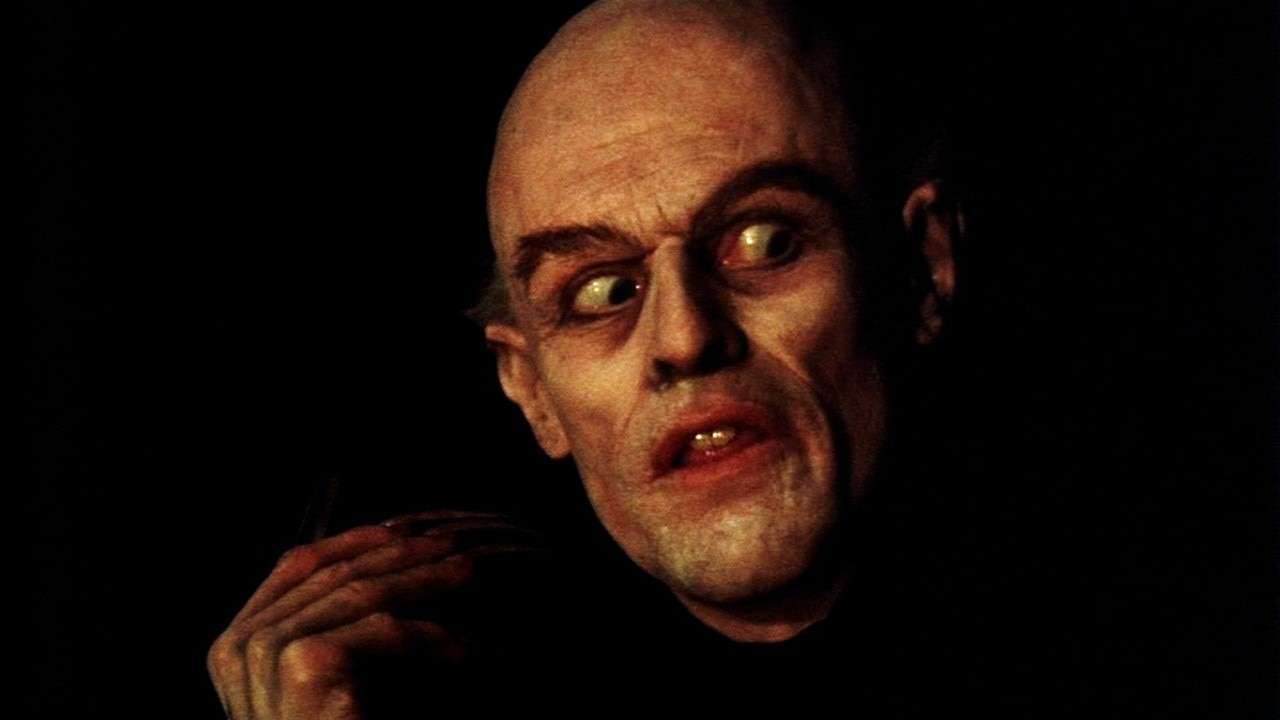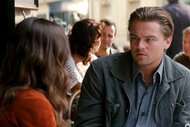Create a free profile to get unlimited access to exclusive videos, sweepstakes, and more!
Shadow of the Vampire remains the greatest horror about the making of a great horror 20 years later

Shadow of the Vampire, a 2000 metafictional horror film about the making of the silent era's most influential horror, didn't necessarily require much artistic license. 1922's Nosferatu, eine Symphonie des Grauens (Nosferatu, A Symphony of Horror) had enough of a very real checkered backstory to make the kind of self-congratulatory prestige pic that the Oscars love showering awards upon.
There was a copyright battle over Nosferatu's blatant similarity to Bram Stoker's famed 1897 novel, Dracula, the result of which burned all but one existing print like the eponymous vampire in the sunlight. The short-lived Prana Films — co-founded by Germany's premier occultist Albin Grau — also went up in smoke after its one and only production. And at the time, lead actor Max Schreck was rumored to have been an offbeat alter-ego of future Metropolis star Alfred Abel.
However, Shadow of the Vampire director E. Elias Merhige was never going to make a straight-forward insight into Hollywood folklore. After all, this was the man who'd made his name with Begotten, an avant-garde (and some would say unwatchable) allegory whose opening scene sees God disembowel himself with a straight razor. It's little wonder that Marilyn Manson would later come calling.
Instead, Merhige proposed the theory that Schreck (whose surname translates aptly as "terror") was so utterly convincing as bloodsucker Count Orlok for a reason: He was actually a vampire. And one who'd made a Faustian pact with director F.W. Murnau that would see him grace the picture in exchange for the blood of its leading lady. "It's a very demanding role," she's warned in flashback, just one example of Shadow's penchant for knowing one-liners.
Unsurprisingly, Murnau doesn't inform his cast and crew that he discovered Schreck holed up in a Slovakian castle. Rather, he concocts an inspired excuse that the mysterious man is a method actor plucked from the experimental theater scene who insists on staying in character throughout the entire shoot. Merhige draws plenty of laughs from this farcical scenario. See the Ozzy Osbourne-esque moment in which Schreck effortlessly grabs a bat in mid-air before feasting on its blood, leaving two of Nosferatu's behind-the-scenes team awestruck at his commitment to the cause.
There's also a delightfully hammy quality to the acting in Shadow, perhaps designed to reflect a period when exaggerated gestures had to compensate for the lack of dialog. As you'd expect, John Malkovich relishes the opportunity to go full-on Malkovich, belting out each line as the unscrupulous Murnau as if he's playing to the rafters.
He's matched in the scenery-chewing stakes by Willem Dafoe, who, like the film's make-up department, received a surprise Oscar nomination (Best Supporting Actor) for his Dracula-esque turn. Just like his character is purported to be doing, Dafoe fully embodies himself in his role, hunching, grunting, and leering his way through every scene while sporting some mighty carnivorous fangs, claw-like lengthy fingernails, and pointed ears, not to mention a complexion as pallid as a saucer of milk.
Schreck/Count Orlok has quite the deadpan streak, too. "Oh, the script girl? I'll eat her later," he tells Murnau when questioned why he chose cinematographer Wolfgang (Ronan Vibert) as his first victim rather than someone lower down the pecking order. But for all its deliberately camp antics and witty banter, Shadow of the Vampire still manages to recapture the slow-burning creepiness of the film whose history it's skewering.
Initially, the audience is kept in the dark over Schreck's true identity. Maybe he really is just an oddball actor determined to push the boundaries of his artistry? The early 20th century'’s answer to Jim Carrey, perhaps? It's only after the attack on Wolfgang and a chilling riposte to Murnau's threat ("Tell me how you would harm me, when even I don't know how I could harm myself") that his vampiric state appears to be confirmed.
But as Schreck's lust for blood, and particularly for that of the film-within-a-film's damsel in distress, grows, the production team's morality levels also shrink. After Murnau comes clean during the shoot's latter stages on the small archipelago of Heligoland, producer Grau (Udo Kier, who'd actually played the lead in 1974's Blood for Dracula) and replacement cinematographer Wagner (Cary Elwes) cowardly agree to sacrifice Greta (Catherine McCormack) to save themselves. The following scene proves that they are the true monsters.
Indeed, the Count is only doing what comes instinctively. There's nothing natural about the humans' disturbing conduct once Greta realizes her co-star has no reflection, silencing her hysterics with a significant amount of opium and allowing Schreck to finally receive his reward. As he sinks his teeth into her neck with the camera rolling, Murnau and co. have essentially turned the unauthorized retelling of a gothic classic into a depraved snuff movie.
But while Grau and Wagner eventually meet their own grisly ends, the man who has sacrificed nearly his entire crew in his quest for authenticity remains unscathed and entirely free of remorse. "Frankly, Count, I find this composition unworkable" are the only words that Murnau can muster after watching the murder of his two remaining colleagues from behind the lens.
Even the previously unflappable Schreck appears entirely unnerved by this warped understanding of "the show must go on," sheepishly returning to the scene of the crime for a final retake. Murnau just about manages to finish his at-all-costs masterpiece as the shoot is interrupted by the surviving crew members bursting in from outside. "I think we have it," he tells screenwriter Galeen (John Aden Gillet) as the sunlight burns his leading man to a crisp. And that's all that matters.
Who knows what Murnau's descendants make of a movie depicting the filmmaker, reportedly a perfect gentleman in real life, as a cold-blooded megalomaniac? Likewise, director Werner Herzog, whose fractured relationship with actor Klaus Kinski on 1979's Nosferatu the Vampyre was also said to be a direct influence (the real Schreck's eccentric reputation suggests he'd have been delighted with Dafoe's unique portrayal). But with his unrelenting pursuit of perfection, Malkovich's representation undoubtedly gives Shadow of the Vampire its unique bite.


























